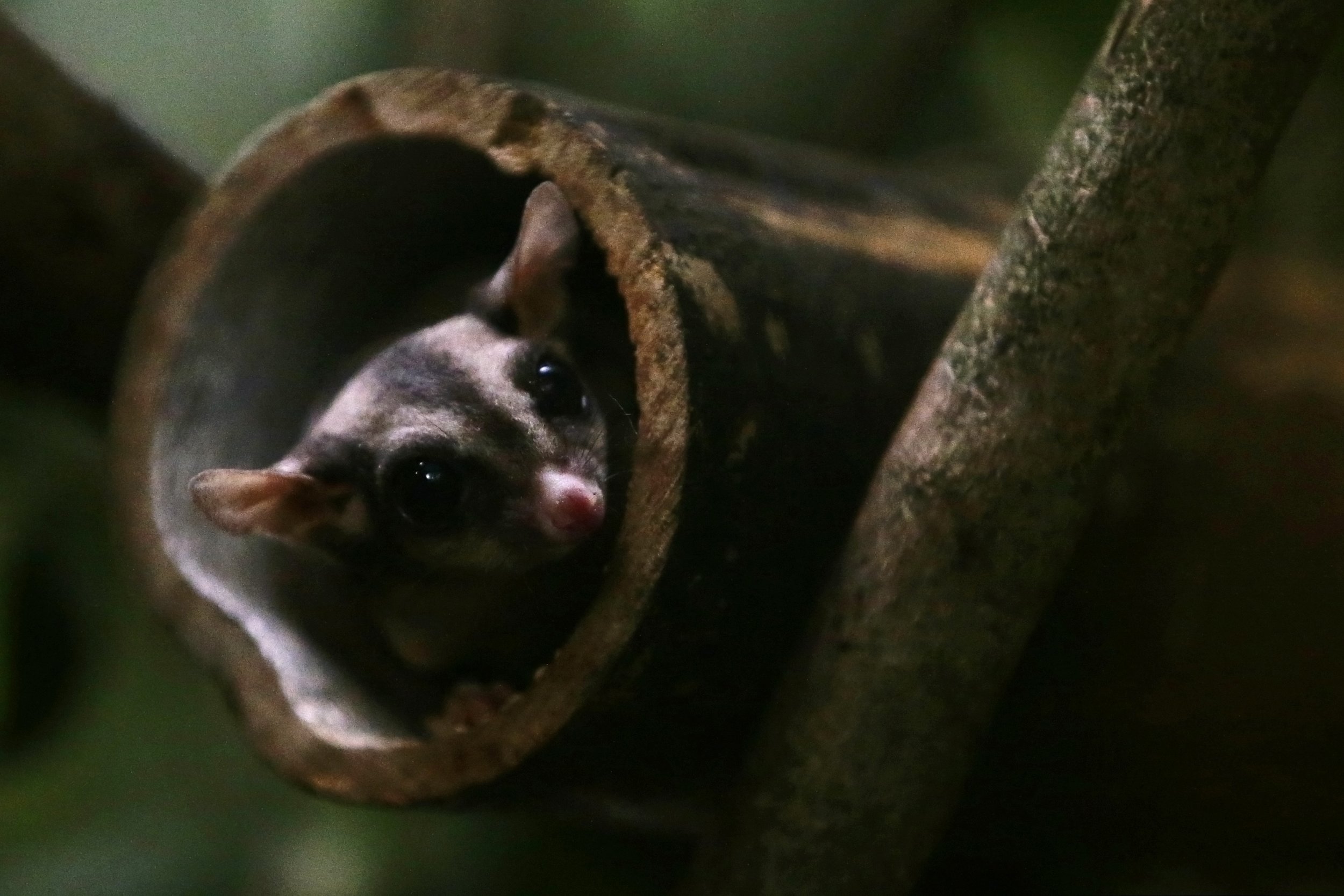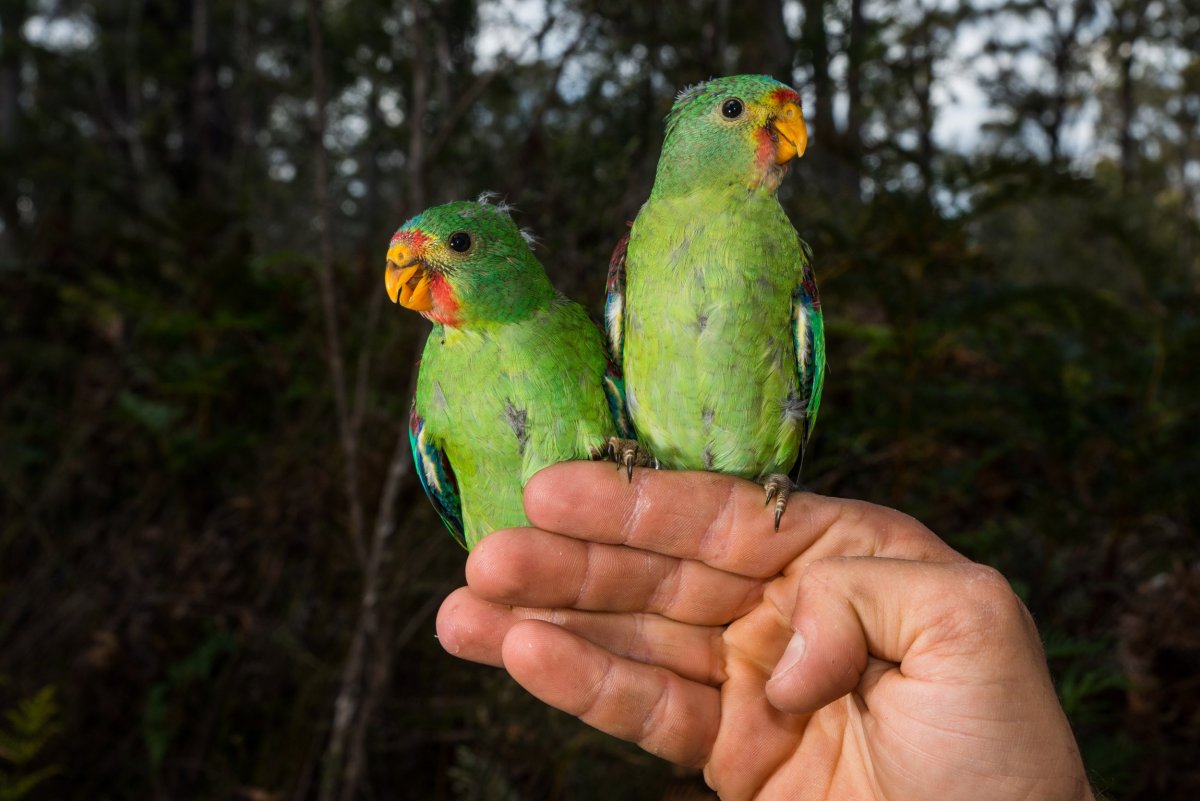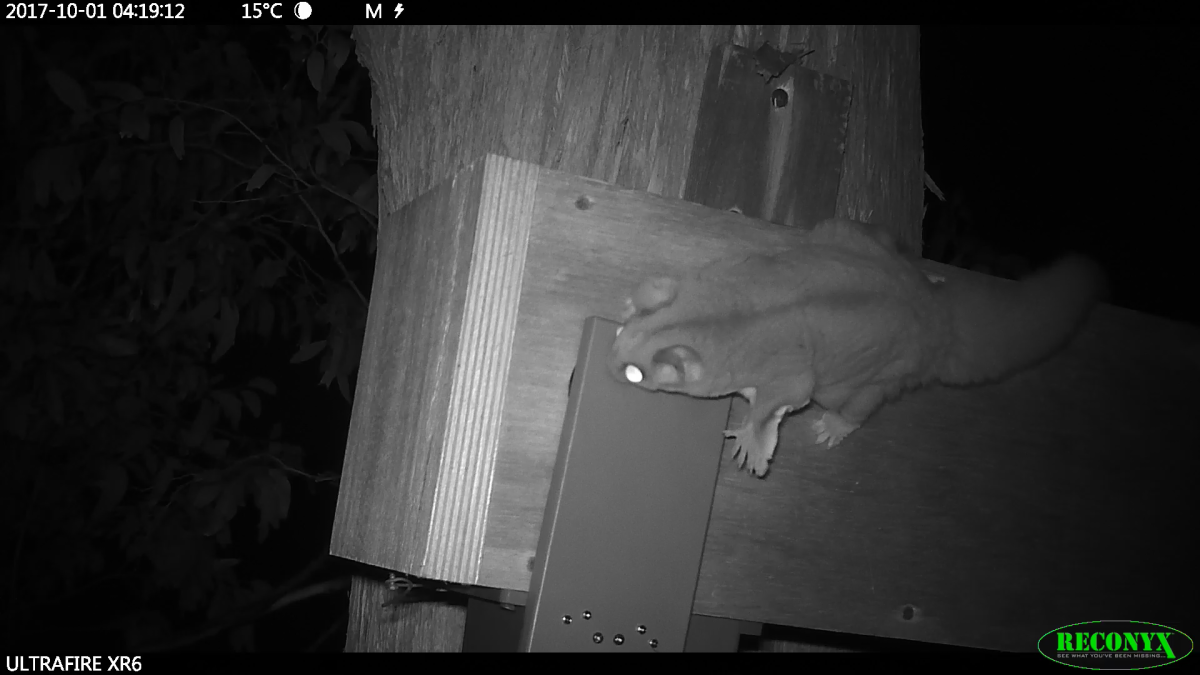
Don't be fooled by their adorable faces and small furry bodies—the sugar glider is not to be messed with. This palm-sized marsupial is single-handedly bringing the endangered swift parrot to the brink of extinction and may succeed if we don't quickly intervene.
Sugar gliders are the "it" pet of 2017, with YouTube videos showing this tiny squirrel-like creature flying into their owners's pockets. While these furry acrobats may spend their time spreading glee and happiness in suburban American homes, in their native habitat, the sugar gliders's habits are a bit more ominous. The nocturnal predator has a particular taste for parrots, whether in the form of eggs, baby chicks, or full-sized adults, Sky News reported. As a result, populations of the critically endangered swift parrot are quickly dropping.
Related: The economics of extinction: Africa's elephants and rhinos in danger
Swift parrots visit Tasmania once a year to breed, and it's here that the sugar gliders do the most damage. According to Dejan Stojanovic, a researcher at Australian National University who studies the birds, in an article posted on The Conversation, the voracious appetite of sugar gliders has hurt all but about 17 percent of swift parrot nests on mainland Tasmania.
"If we don't intervene immediately, this year could be a huge blow to the conservation of this species," Stojanovic told Sky News.
Related: Five mass extinctions wiped out 99 percent of species that ever lived-are we headed for the sixth?
The swift parrot is one of just two migratory parrots in the world, and their numbers are dropping far faster than they are able to breed. Of course, sugar gliders are not all to blame. Like so many stories of nature-gone-wrong, humans can be traced back as the original catalyst to this problem. Deforestation caused by human activity means that there is less high mature forest cover for the birds to hide in. This exposure makes them easy prey for the sugar gliders, who have about an 80 percent success rate in killing these birds.

"In areas where deforestation is worse, the likelihood of being eaten by a sugar glider is higher," Stojanovic told SkyNews. "Habitat is the most important issue and it's still being lost by industrial forestry."
There may be a solution though. Stojanovic and his team have created a breeding box that they think could save swift parrots, their chicks and eggs from complete obliteration at the tiny blood-thirsty hands of the sugar glider, ABC Australia reported.

The boxes are light sensitive, opening only in the day and staying closed at night. This is important because the evening is when the nocturnal sugar gliders feast on the unsuspecting and often sleeping birds. They've already proven to be a success, and according to Stojanovic, the birds have really taken to their new homes. "They just used the boxes and got on with raising their babies," he said, Mercury reported.
The breeding boxes are only a temporary solution and Stojanovic emphasized that the problem won't be solved until the root cause, deforestation, is addressed. That awareness also saves us from (solely) blaming this adorable forest creature.
Uncommon Knowledge
Newsweek is committed to challenging conventional wisdom and finding connections in the search for common ground.
Newsweek is committed to challenging conventional wisdom and finding connections in the search for common ground.
About the writer
To read how Newsweek uses AI as a newsroom tool, Click here.








